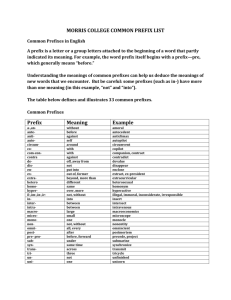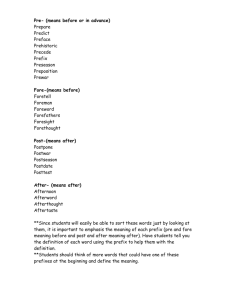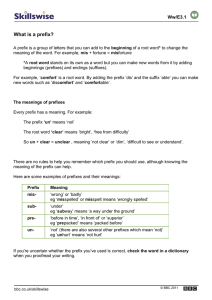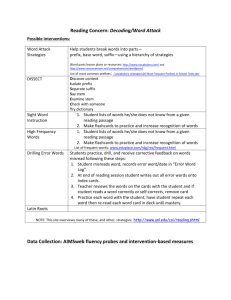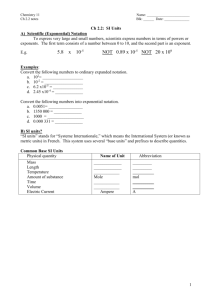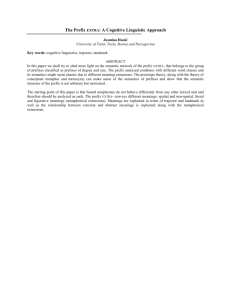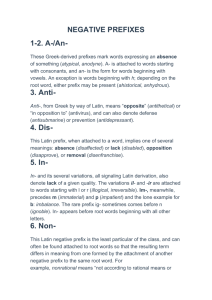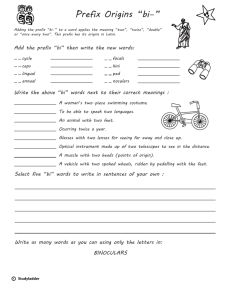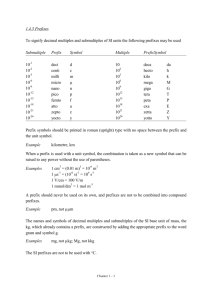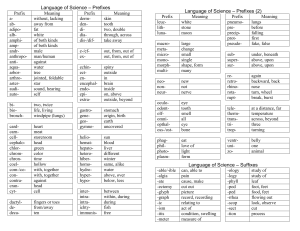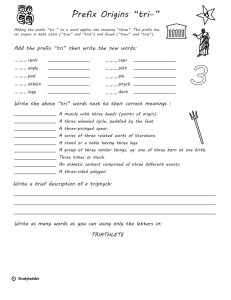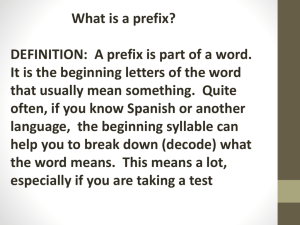Word - BBC
advertisement
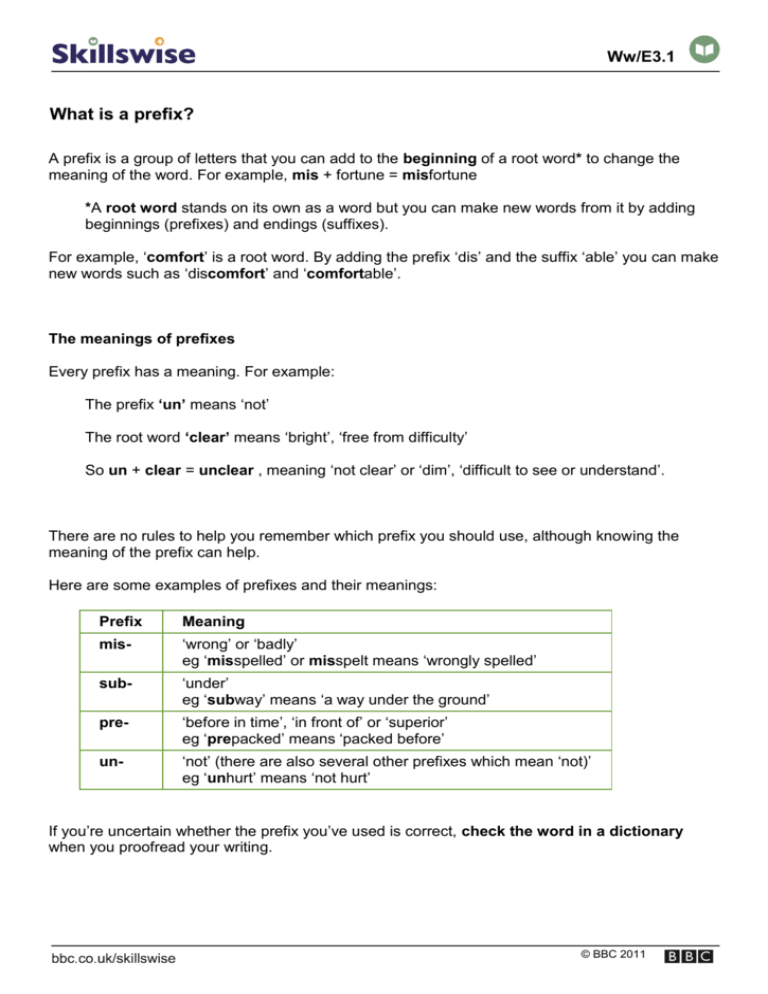
Ww/E3.1 What is a prefix? A prefix is a group of letters that you can add to the beginning of a root word* to change the meaning of the word. For example, mis + fortune = misfortune *A root word stands on its own as a word but you can make new words from it by adding beginnings (prefixes) and endings (suffixes). For example, ‘comfort’ is a root word. By adding the prefix ‘dis’ and the suffix ‘able’ you can make new words such as ‘discomfort’ and ‘comfortable’. The meanings of prefixes Every prefix has a meaning. For example: The prefix ‘un’ means ‘not’ The root word ‘clear’ means ‘bright’, ‘free from difficulty’ So un + clear = unclear , meaning ‘not clear’ or ‘dim’, ‘difficult to see or understand’. There are no rules to help you remember which prefix you should use, although knowing the meaning of the prefix can help. Here are some examples of prefixes and their meanings: Prefix Meaning mis- ‘wrong’ or ‘badly’ eg ‘misspelled’ or misspelt means ‘wrongly spelled’ sub- ‘under’ eg ‘subway’ means ‘a way under the ground’ pre- ‘before in time’, ‘in front of’ or ‘superior’ eg ‘prepacked’ means ‘packed before’ un- ‘not’ (there are also several other prefixes which mean ‘not)’ eg ‘unhurt’ means ‘not hurt’ If you’re uncertain whether the prefix you’ve used is correct, check the word in a dictionary when you proofread your writing. © BBC 2011
